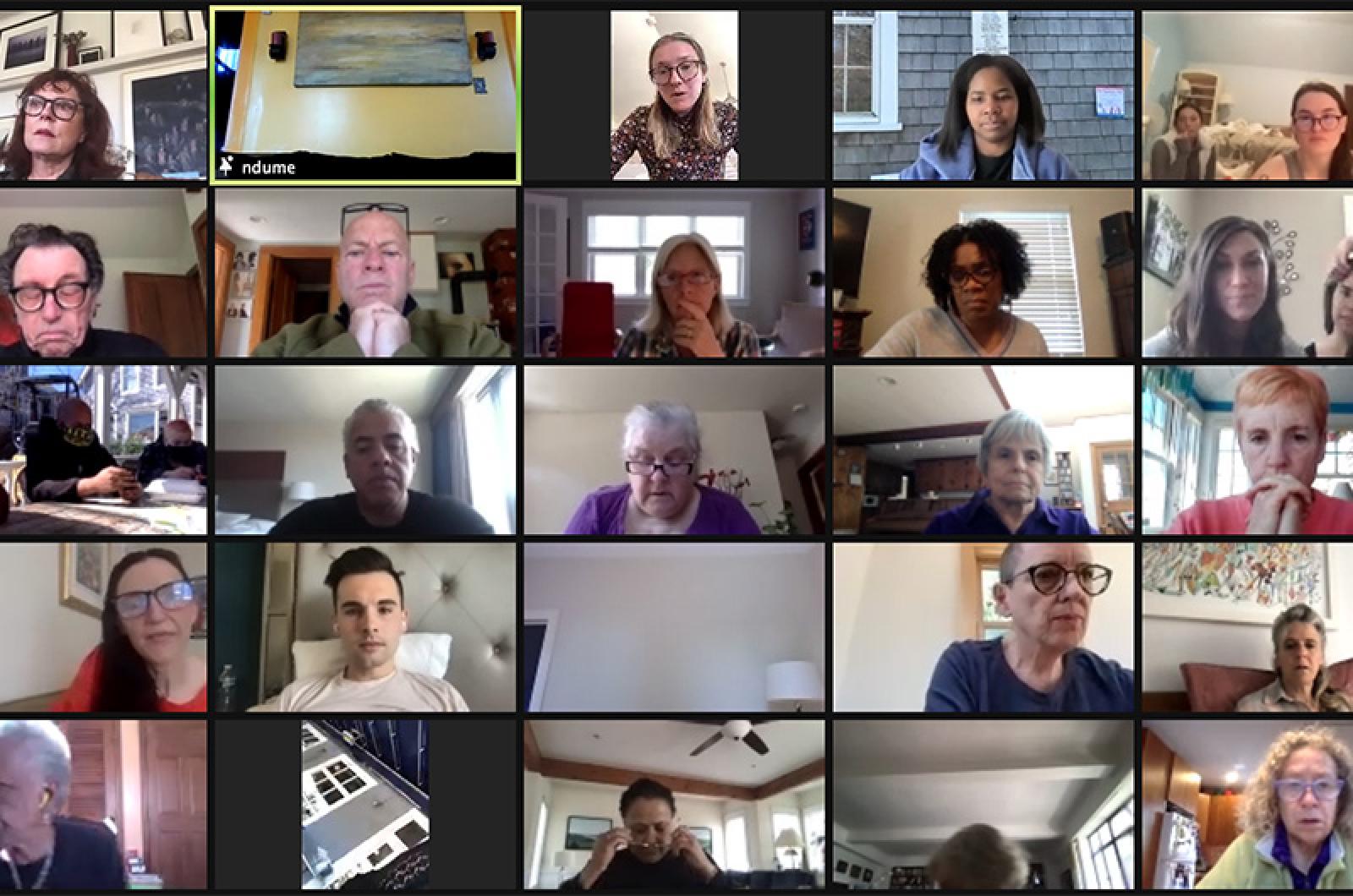In 1983 Ndume Olatushani was convicted of murder and sentenced to death in Memphis, Tenn. — a city in which he had never set foot, for a crime he did not commit. In June 2012, nearly 28 years and a fierce legal battle later, Mr. Olatushani was exonerated and released from prison.
In a Zoom interview with acclaimed actress and longtime activist Susan Sarandon hosted by the Martha’s Vineyard Black Lives Matter group last Sunday, Mr. Olatushani shared his chilling story.
The virtual event, which covered Mr. Olatushani’s harrowing journey through the criminal justice system and his advice on how to reform it, was organized by the Vineyard group as part of an ongoing effort to bring justice to Pervis Payne — a death row inmate and friend of Mr. Olatushani, who has maintained his innocence for 33 years.
Mr. Payne was granted a temporary execution reprieve earlier this year that expired on April 9.
“Since I’ve been home, I’ve been trying wherever I can show up to just try to educate people and let them know about what’s actually happening in their system,” Mr. Olatushani said on Sunday.
His own story began in 1983, when he was charged and tried for murder in Memphis. Mr. Olatushani said the case was rife with corruption from the start, including fabricated evidence used against him during the trial as well as exonerating evidence that was withheld by the authorities at the time.
“It was not one of these cases where there was some ambiguity about the people that actually did it. In my case, the authorities knew that I was not guilty of the crime,” he said. “At that point the case was over two years old, and at the time the only thing they were concerned about was actually closing it . . . and I fit the bill.”
Mr. Olatushani pointed to the racism ingrained in the country’s judicial system as leading factors.
“I was this young black male . . . accused of killing a prominent white person in the community of Memphis and I was tried by an all-white jury,” he said. “Everything that possibly could have gone wrong in my trial went wrong.”
His long journey to freedom began two years into his imprisonment, when his mother was killed, he said. Her death inspired him to take up painting and continue the fight for his freedom.
“As I was trying to pick myself back up after this thing happened to my mother, art found me,” Mr. Olatushani recalled. “Even though I was in this environment that was devoid of color, they couldn’t stop the color that was happening in my head and that became a form of resistance.”
Through his art Mr. Olatushani met his future wife, Anne-Marie Moyes, an employee at an organization opposing the death penalty who was organizing a prison art show. With her help, Mr. Olatushani began reaching out to advocacy groups and eventually made contact with the NAACP Legal Defense Fund, who connected him with a team of lawyers.
Seventeen years later, Mr. Olatushani won his freedom from death row, and a few years after that, from prison. Since then he has made it his mission to advocate for justice for those in prison and on death row.
It begins with bringing justice to his friend Mr. Payne, whose execution for a crime he maintains he did not commit could be reset any day.
“Pervis was one of those people that I certainly believe was innocent of what he was actually talking about,” said Mr. Olatushani, noting the similarities between their cases. “People tell us that death row is reserved for the worst of the worst and I’m telling you that’s not the case.”
He encouraged Islanders to write letters to Mr. Payne, and said putting pressure on the Tennessee governor and contacting advocacy organizations like the Innocence Project in Nashville could also help the cause.
“The main thing is just reaching out to Pervis and letting him know that there are people out here that actually care about him and are trying to save his life,” Mr. Olatushani said, thanking Islanders for their work.
“I have no doubt that [this movement] will extend beyond this,” he concluded “Pervis is just a pebble on the beach in terms of some of the injustices that we actually see from people that are suffering and sitting in jails and prisons across this country right now while we talk.”







Comments
Comment policy »